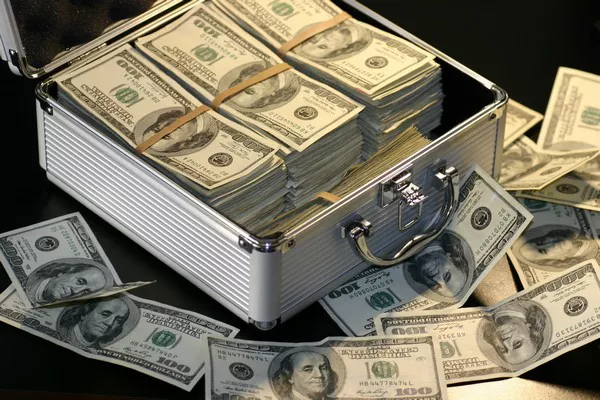Banks are the backbone of modern economies, providing financial services and acting as intermediaries between individuals, businesses, and governments. They play a crucial role in allocating capital, managing risk, and facilitating economic growth. In this article, we explore which bank is considered to be the most powerful in the world.
What Does It Mean to Be Powerful?
Before we dive into the analysis, it’s important to define what we mean by “powerful” in the context of banks. There are several factors that could contribute to a bank’s power, including its size, assets under management, revenue, profitability, influence, and reach. A powerful bank would likely have a combination of these attributes, along with a strong reputation and brand recognition.
The Top Contenders:
So, which bank can claim the title of the most powerful in the world? Several contenders come to mind, including JPMorgan Chase, Industrial and Commercial Bank of China (ICBC), Bank of America, Wells Fargo, and Citigroup. Let’s take a closer look at each of these banks and what makes them stand out.
JPMorgan Chase:
JPMorgan Chase is the largest bank in the United States, with over $3.2 trillion in assets under management. It operates in more than 100 countries and has a reputation as a leading investment bank, providing services such as mergers and acquisitions, debt and equity underwriting, and trading. JPMorgan Chase is also known for its retail banking division, which serves millions of customers across the country. The bank has consistently ranked among the top performers in terms of revenue and profitability, and its CEO, Jamie Dimon, is widely respected in the industry.
Industrial and Commercial Bank of China (ICBC):
ICBC is the largest bank in the world by total assets, with over $4.3 trillion under management. As the name suggests, it’s based in China and has a dominant presence in the country’s banking sector. ICBC offers a range of financial services, including personal and corporate banking, wealth management, and investment banking. The bank has grown rapidly in recent years, expanding into new markets such as Europe and Africa. ICBC has also been recognized for its innovation, particularly in areas such as mobile banking and fintech.
Bank of America:
Bank of America is another major US bank, with over $2.8 trillion in assets under management. It’s known for its consumer-facing businesses, including retail banking, credit cards, and mortgages. Bank of America also has a significant investment banking division, providing services such as capital raising and advisory. The bank has a strong presence in both the United States and international markets, with operations in more than 35 countries. Bank of America has a history of mergers and acquisitions, including its acquisition of Merrill Lynch during the financial crisis.
Wells Fargo:
Wells Fargo is one of the oldest and largest banks in the United States, with over $1.9 trillion in assets under management. It’s primarily focused on retail banking, offering services such as checking and savings accounts, mortgages, and personal loans. Wells Fargo also has a wealth management division and an investment banking arm. The bank has faced several scandals in recent years, including a fake accounts scandal that resulted in a $3 billion fine. Despite these challenges, Wells Fargo remains one of the leading banks in the United States.
Citigroup:
Citigroup is a global banking giant, with operations in more than 100 countries and over $1.9 trillion in assets under management. It’s known for its investment banking division, which provides services such as mergers and acquisitions, capital raising, and trading. Citigroup also has a substantial retail banking business, serving millions of customers across the globe. The bank has undergone significant restructuring in recent years, streamlining its operations and divesting non-core businesses. Citigroup has a reputation for innovation, particularly in areas such as digital banking and blockchain.
What bank is the safest to put your money?
The safety of a bank depends on various factors, such as its financial stability, reputation, regulatory environment, and deposit insurance protection.
In most countries, deposits up to a certain amount are insured by the government or a similar organization, which means that if a bank fails, the depositors can still get their money back up to the insured limit.
Generally speaking, banks with a strong credit rating and capitalization, as well as a long track record of stability, are considered safer choices than those with weaker financial metrics or a history of instability.
It is always recommended to do your own research and due diligence before choosing a bank to trust with your money. You may also want to consider diversifying your deposits across multiple institutions and types of accounts for added security.
Conclusion
So, which bank is the most powerful in the world? It’s difficult to say definitively, as each of the banks we’ve discussed has its own strengths and weaknesses. JPMorgan Chase, ICBC, Bank of America, Wells Fargo, and Citigroup all have significant size, influence, and reach. They’re also known for their financial performance, innovative capabilities, and strategic positioning. Ultimately, the answer may depend on factors such as geography, industry focus, and personal opinion. What’s clear is that these banks are among the most important institutions in the global economy, playing a vital role in shaping the future of finance.


